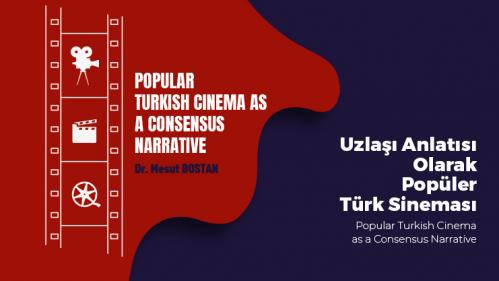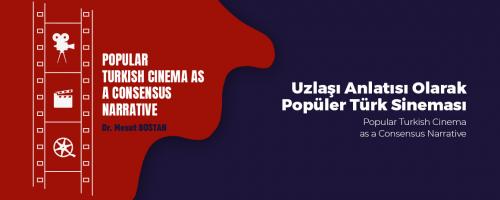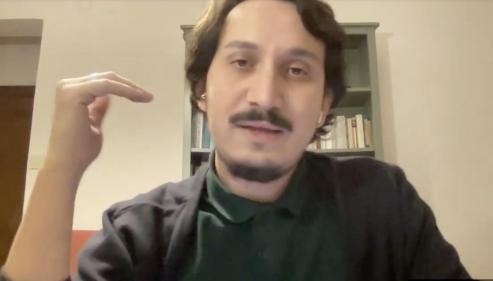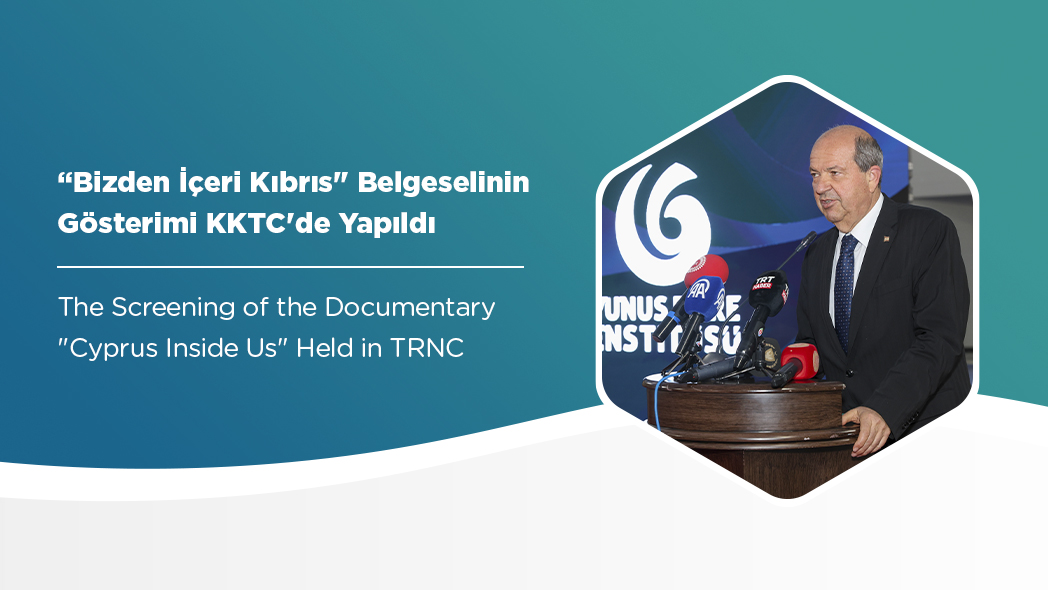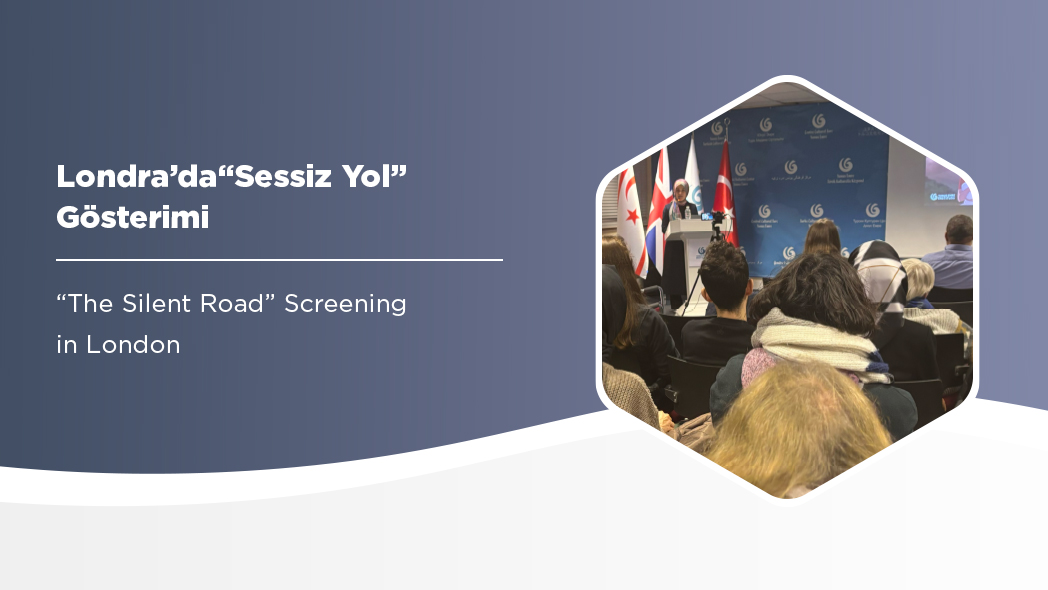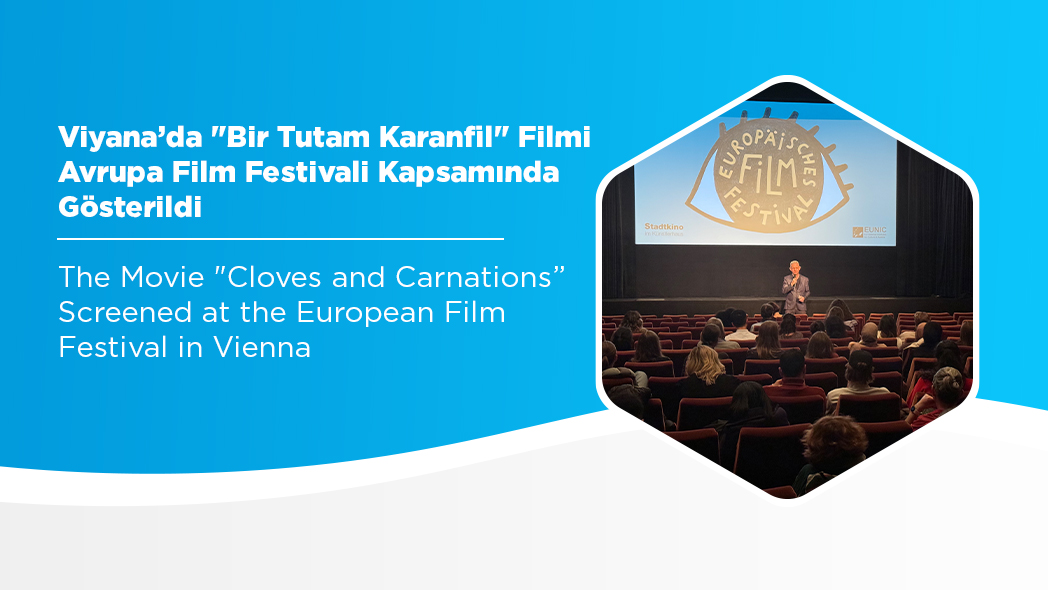Popular Turkish Cinema as a Consensus Narrative
The cultural collaboration between Yunus Emre Institute and the University of Illinois Urbana-Champaign to promote Turkish culture in the USA continues. Within the scope of the program series organized under the project, an event was organized about Yeşilçam Cinema on December 1, 2021. Dr. Mesut Bostan, Lecturer at the University of Illinois, Department of Linguistics and Faculty Member at Marmara University, Department of Radio and Television, participated as a speaker in the program moderated by Dr. Ayşe Özcan, the Head of the Turkish Program at the same department. At the event, Dr. Bostan delivered a presentation entitled "Popular Turkish Cinema as a Consensus Narrative" in which he included important sociological determinations.
Before the program started, Angela Selena Williams, the Vice-Director of Center for South Asian and Middle Eastern Studies at the University of Illinois Urbana-Champaign, provided valuable information about the Turkish Program.
Cem Sevindik, the Director of Strategic Development and Corporate Communication at Yunus Emre Institute, thanked to those who contributed to the program and the participants in his opening speech. Sevindik mentioned the events that have been carried out with the University of Illinois and mentioned that Turkish cinema, just like Turkish TV series, was one of the most important topics about the Turkish culture and art.
TRANSFORMATION FROM THE PERCEPTION OF BELONGING TO SUB-CULTURE TO THE GENTRIFIED CULTURAL PRODUCT
Dr. Bostan focused on the Yeşilçam period of Turkish cinema and likened Yeşilçam Cinema to Hollywood Cinema. Dr. Bostan stated that the expression of Yeşilçam Cinema was controversial and mentioned that this expression was used to represent a "cultural product of a lower level of culture". Dr. Bostan emphasized that Yeşilçam Cinema has a much more central perception today and that it did not have such positive perception of today in its earlier periods. Bostan argued that Yeşilçam Cinema was very much criticized by the film critics and screen writers but is now subject to a process of gentrification. Dr. Bostan stated that the old name of the cinema hall at the Atatürk Cultural Center, which was reopened after the restoration of the Center, was Yeşilçam Cinema and mentioned that Yeşilçam was museumified in such manner and started to be accepted more with the special events organized in the past few years. Dr. Bostan mentioned that Yeşilçam, which was rediscovered in the late 2000s, started to become a strong cultural reference and create the source of the consensus narratives and presented the large-budget films shot in the past few years as evidence to this by providing examples from the film "Arif v 216", produced by the famous comedian and film producer Cem Yılmaz on Yeşilçam itself.
Dr. Bostan mentioned that the name Yeşilçam was derived from a tiny street in Beyoğlu and said that the neighborhood in which the street is located was not at the city center of the time and thus the cinema production there was perceived as a product of a less-developed culture. He stated that the magazine writers belittled the domestic production and criticized Yeşilçam that were produced with limited resources as "poor".
EVERY PART OF THE SOCIETY COULD MEET WITH YEŞILÇAM
Dr. Bostan mentioned that Yeşilçam films could meet with every part of the society and stated that any person from all parts of the society, including those with lower income levels, could go to see a film anytime they wanted and that going to cinema frequently became a popular habit. Bostan explained that the frequency of going to cinema decreased even further and that people only went to cinema on special occasions with collapse of the Yeşilçam industry in 1990. Bostan mentioned that cinema had a cultural power during the Yeşilçam period but interest in popular cinema decreased after 1990 and 2000.
Consensus narrative is defined as shared common cultural products that have an influence on the social plane. Dr. Bostan explained how Yeşilçam moved away from being a consensus narrative when the television culture arrived as follows:
"For example, we watched Yeşilçam films on TV when I was a child. Yeşilçam was one of the main sources of reference in daily conversations. After the 1990s, television became the consensus narrative. Today, television's function as consensus narrative is being questioned in the past few years as the digital platforms started to become more popular. Therefore, television is losing its status as cultural visibility, cultural power and consensus narrative."
HOW DID YEŞILÇAM BECAME THE CONSENSUS NARRATIVE?
Dr. Bostan mentioned that the cultural positioning that occurred during the formation of Yeşilçam Cinema could not be understood today because Yeşilçam Cinema is going through a process of museumification and thus acquiring a different position through its gentrification.
Bostan said that Yeşilçam Cinema now had a great richness, produced a hegemonic social discourse, and that many directors such as Metin Erksan, Osman Seden and Atıf Yılmaz could exist in this cinema through artistic and modern inspirations as well.
Dr. Bostan mentioned that the emergence of Yeşilçam Cinema was related to the social, economic and cultural liberalization in Turkey after the Second World War and stated that the society was static before the War, but with the emigrations from the countryside to the urban centers after the War were related the to the new position of Turkey in the global politics. Dr. Bostan listed the developments in Turkish cinema in light of international relations, political system and social and cultural developments as follows:
"The political system in Turkey changed after the Second World War. "By joining the NATO and Council of Europe, Turkey picked his side and preferred the Western Bloc during the Cold War. With the transition to multi-party system, the political elite settled in a more realistic perspective. The new cultural regime caused a new cultural awakening both in many branches of art and the lives of ordinary people. While there were breakthroughs in literature, classical Turkish music re-met the people by evolving into a more popular form. The historical development of Turkish cinema started in this period."
Dr. Bostan stated that Turkey entered into a process of modernization and social change in the 1950s and said that those who emigrated to cities lived in the suburbs and these regions were called 'gecekondu' (slums) regions. Dr. Bostan provided examples from the studies of the historian Dr. Kemal Karpat on emigration, gecekondus and urbanization and mentioned that the emigrants also brought with themselves their values, cultures and beliefs. He stated that some scholars argued that Turkish cinema after the Second World War was more appealing to the countryside and that entire Anatolia watched these films. He mentioned that Muharrem Gürses was the founder of this type of cinema and some directors were even associated with being members of the 'Gürses School'. Dr. Bostan mentioned that films adapted from the works of novelists such as Kerime Nadir with a scenario that revolved around urban life were also produced and said that the main elements in such films were Istanbul scenery, Turkish music and a love story. Films of countryside and Istanbul melodramas were the primary films that were box office hits until the end of the Yeşilçam period.
YEŞILÇAM REPRESENTS THE TWO FACES OF THE MODERNIZATION PROCESS IN TURKEY
Dr. Bostan mentioned that the Yeşilçam films assumed to role of creating an ambiguity between modernization and those that are not fond of modernization and said that these films were a reflection of the wishes and inspirations of the ordinary people who were crushed under the authoritarian modernist project. Dr. Bostan emphasized that the films also had a shallow but popular understanding of modernization and mentioned that the films reflected a more liberal modernization that tried to move from bottom to top against a modernization that tried to move from top to bottom.
The event ended after Dr. Bostan answered the questions of participants.
CARRIES OUT STUDIES ON TURKISH CINEMA
Dr. Mesut Bostan acquired his master's degree from Istanbul University, Institute of Social Sciences, Department of Sociology with his dissertation titled "C. Wright Mills' Understanding of Sociology". Afterwards, he prepared his PhD theses entitled "Ideology and Politics in Turkish Cinema of the 1960s with the Framework of the 'Populist Mind'" at Marmara University, Institute of Social Sciences, Department of Communication Sciences. His academic areas of interest are the relationship between Islamist thought and cinema in Turkey, theories of ideology and populist politics in Turkey based the sociology of Turkish cinema. His work entitled "Turkish Cinema in 40 Questions", a compilation of articles on Turkish cinema, was published in 2019. In addition, he authors articles on cinema, culture and society in newspapers and magazines.

